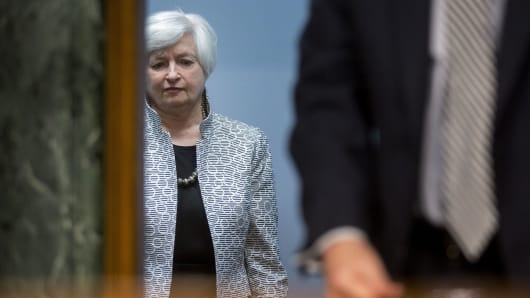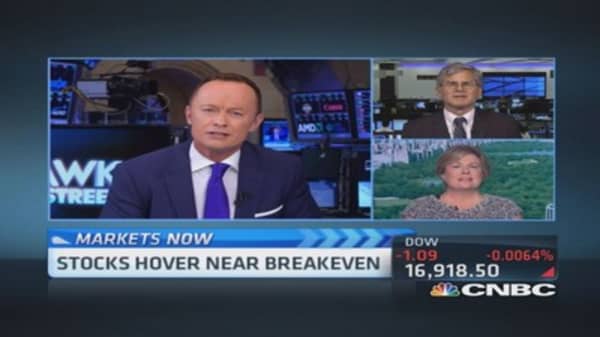Looking here, the U6 unemployment rate, which takes into account part-time workers and those marginally attached to the labor force, remains far below pre-crisis levels. More than 1.2 million people who are considered out of the labor force are currently seeking a job, with little fiscal stimulus emerging from Washington to help.
And wage inflation is very low. To push up the personal consumption expenditure (PCE) inflation measure targeted by the Fed, wage inflation would have to rise from its current rate of around 2 percent, to 3-4 percent year-on-year.
Of course, if economic growth continues, unemployment falls, inflation and wages rise and broader measures of the labor market suggest that spare capacity is declining, Yellen will respond with tighter policy. But if they don't, she won't.
So how should investors respond to this? It's not about judging whether policy is right or wrong, but working out what is likely. So while the hawks may cry, the data suggests that current policy will be maintained for now, and investors can remain comfortable with positive positions in equities and high-yield credit.
But to prepare for volatility, investors should remain cautious on adopting an overweight position in government bonds, which offer little insulation against higher rates, and especially the dollar-denominated sovereign debt of emerging market issuers that have demonstrated a particular sensitivity to higher U.S. borrowing costs.
Read MoreWall Street expects really dovish Fed on rate hikes: Survey
Overall, the Jackson Hole Symposium will be one of the first opportunities for leading economists to oppose Yellen's dovishness. As such, investors should not be surprised by circling hawks – and they shouldn't concentrate too heavily on any "rate rage". Instead, they should stay focused on the facts, and continue to position themselves positively in response.




